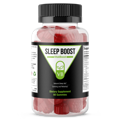How Relaxation and Supplements can Improve Sleep Quality
Sleep is a bodily function that is critical to our overall health and wellbeing. It allows your mind and body to rest and reset after a long day, thus making you ready for the next. Though this benefit may be obvious, many people do not understand just how important sleep is to the body (1).
Outside of providing you a way to recharge, sleep can also:
- Improve cognition and memory. Sleep plays an integral role in the neurological processes related to your overall cognitive functioning and ability to remember things. In terms of cognition, sleep helps support functions such as thought processing, making connections, and knowledge building. It also contributes to memory processing and consolidation (2).
- Helps muscle building and recovery. While sleep is thought to be a relaxing and low-effort activity, it actually is instrumental to both muscle recovery and growth. While you sleep, your body releases growth hormones, which are important to muscle building. Because you are resting, sleep also helps to alleviate pain and tension in your muscles (3).
- Keep you healthy. Studies show that sleep, or lack thereof, can affect our overall health, particularly with regards to immunity. Research demonstrates that sleep deprivation can influence the immune system and cause several health conditions (4).

Table of Contents
How much sleep should you get?
With the hustle and bustle of everyday life, many of us do not prioritize sleep in the way we should. Knowing the importance of sleep in our health and wellbeing, you should always aim to get the recommended amount of sleep every night.
The amount of sleep you should get depends on your age and will change throughout your lifetime. Children and adolescents, for example, usually require much more sleep, especially if they are less than five years old. As you get older and into adulthood, experts recommend getting at least seven hours of sleep per night (5).
What is proper sleep hygiene and what does it look like?
Sleep hygiene refers to maintaining sleep habits that help you achieve a full night's rest. Doing these things can help to relax you and eliminate distractions and stimuluses. Such habits include:
- Maintaining a regular sleep schedule. This means trying to go to bed at the same time every night and waking up at the same time every morning.
- Dimming the lights. Bright lights cause reduced production of melatonin, an essential hormone for sleep.
- Minimizing screen time before bed. It’s best to put away electronics at least 30 to 60 minutes before bed, as technology can give off blue light and be mentally stimulating.
- Stopping eating a few hours before bed and avoid caffeine, alcohol, and larger meals (6), (7).
What sleep supplements are effective?
While sleep hygiene and lifestyle can be important to getting a good night’s rest, there are also various supplements that have demonstrated effects in improving sleep quality.
Passiflora Extract
Chamomile
Valerian Root Extract
Magnesium
Ashwaganda
Better Sleep, Better You
- Why do we need sleep? (2014, June 26). Sleep Foundation. https://www.sleepfoundation.org/how-sleep-works/why-do-we-need-sleep
- Deak, M. C., & Stickgold, R. (2010). Sleep and cognition. Wiley Interdisciplinary Reviews. Cognitive Science, 1(4), 491–500. https://doi.org/10.1002/wcs.52
- Van Cauter, E., & Plat, L. (1996). Physiology of growth hormone secretion during sleep. The Journal of Pediatrics, 128(5 Pt 2), S32-37. https://doi.org/10.1016/s0022-3476(96)70008-2
- CDC- how much sleep do I need? - Sleep and sleep disorders. (2019, March 5). https://www.cdc.gov/sleep/about_sleep/how_much_sleep.html
- Module 2. Sleep and the immune system | NIOSH| CDC. (2020, April 2). https://www.cdc.gov/niosh/work-hour-training-for-nurses/longhours/mod2/05.html
- What is sleep hygiene? (2009, April 17). Sleep Foundation. https://www.sleepfoundation.org/sleep-hygiene
- CDC—Sleep hygiene tips—Sleep and sleep disorders. (2019, February 13). https://www.cdc.gov/sleep/about_sleep/sleep_hygiene.html
- Passionflower information | Mount Sinai—New York. (n.d.). Mount Sinai Health System. Retrieved April 9, 2022, from https://www.mountsinai.org/health-library/herb/passionflower
- Ngan, A., & Conduit, R. (2011). A double-blind, placebo-controlled investigation of the effects of Passiflora incarnata (Passionflower) herbal tea on subjective sleep quality. Phytotherapy Research: PTR, 25(8), 1153–1159. https://doi.org/10.1002/ptr.3400
- Abdullahzadeh, M., Matourypour, P., & Naji, S. A. (2017). Investigation effect of oral chamomilla on sleep quality in elderly people in Isfahan: A randomized control trial. Journal of Education and Health Promotion, 6, 53. https://doi.org/10.4103/jehp.jehp_109_15
- Bent, S., Padula, A., Moore, D., Patterson, M., & Mehling, W. (2006). Valerian for sleep: A systematic review and meta-analysis. The American Journal of Medicine, 119(12), 1005–1012. https://doi.org/10.1016/j.amjmed.2006.02.026
- Abbasi, B., Kimiagar, M., Sadeghniiat, K., Shirazi, M. M., Hedayati, M., & Rashidkhani, B. (2012). The effect of magnesium supplementation on primary insomnia in elderly: A double-blind placebo-controlled clinical trial. Journal of Research in Medical Sciences : The Official Journal of Isfahan University of Medical Sciences, 17(12), 1161–1169. https://pubmed.ncbi.nlm.nih.gov/23853635/
- Using magnesium for better sleep. (2021, May 20). Sleep Foundation. https://www.sleepfoundation.org/magnesium
- Langade, D., Kanchi, S., Salve, J., Debnath, K., & Ambegaokar, D. (n.d.). Efficacy and safety of ashwagandha (Withania somnifera) root extract in insomnia and anxiety: A double-blind, randomized, placebo-controlled study. Cureus, 11(9), e5797. https://doi.org/10.7759/cureus.5797
The Vitaliboost Health Guide

